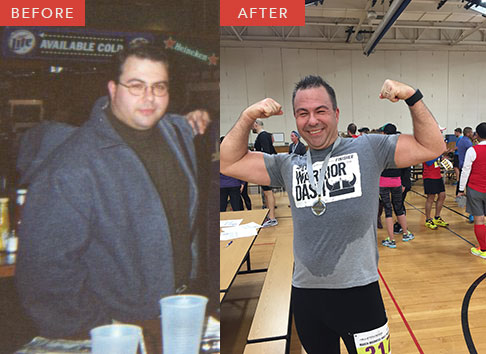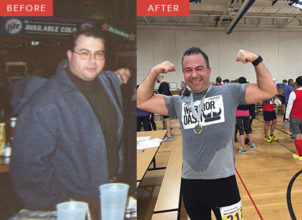 Reading Time: 7 minutes
Reading Time: 7 minutesIn a world obsessed with overnight transformations—think crash diets, intense fitness boot camps, or 30-day productivity challenges—it’s easy to fall into the trap of believing that big, dramatic changes are the only path to self-improvement.
But what if the secret to lasting change lies in the opposite approach?
What if the smallest, most incremental adjustments to your daily routine could lead to profound, sustainable transformation? This is the power of small habit change—consistent, manageable steps toward a healthier, more balanced life.
The Whole Life Challenge is built on the simple idea that small, daily actions across key lifestyle areas—nutrition, exercise, sleep, hydration, mobility, mindfulness, and connection—create a ripple effect of positive change.
By focusing on incremental habits that you can maintain without ever needing to take a break, you can build a life of vitality and purpose. Let’s explore why small habit changes are so powerful and how you can start implementing them today.

Why Small Habits Work
The allure of drastic change is undeniable. We’ve all been tempted by the promise of a “new you” in just a few weeks. But the reality is that most of these approaches are unsustainable.
A 2018 study published in the Journal of Behavioral Medicine found that extreme lifestyle overhauls often lead to burnout, with participants reverting to old habits within months. The reason? Big changes require significant willpower, disrupt routines, and often feel like a sprint rather than a marathon.
Small habit changes, on the other hand, work because they’re designed to fit seamlessly into your life. They don’t demand superhuman effort or a complete restructuring of your day. Instead, they leverage the power of consistency and compounding.
As James Clear, author of Atomic Habits, famously said, “Habits are the compound interest of self-improvement.” A 1% improvement every day may seem insignificant, but over time, it leads to exponential growth.

The Whole Life Challenge encouraging participants to focus on daily practices that are simple yet impactful. For example, instead of committing to an hour-long workout every day, we suggest committing to at least 10 minutes of intentional movement (you’ll often do more).
Instead of a complete diet overhaul, it might ask you to prioritize drinking water or focusing on a small number of things to cut out. These actions are so manageable that you can stick with them indefinitely, creating a foundation for long-term success.
The Philosophy of Incremental Change
We belive wellness is not about perfection but about progress. Each of our 7 Habits is designed to be approachable, with flexible guidelines that allow participants to tailor the challenge to their needs. The goal is not to achieve flawless adherence but to build awareness and consistency over time.
It’s all about that incremental change. By focusing on small, sustainable actions, you avoid the overwhelm that often comes with trying to “fix” everything at once. For instance, the Hydration habit might simply involve drinking a glass of water first thing in the morning and again with each meal along with carrying a small water bottle with you during the day.

This tiny action takes seconds but reinforces the importance of hydration and sets a positive tone for the day. Similarly, the well-being practice might involve writing down things you’re grateful for—a small habit that can shift your mindset without requiring hours of meditation.
The beauty of these incremental changes is that they’re inherently sustainable. Unlike restrictive diets or grueling workout plans that leave you exhausted and craving a break, small habits are designed to become part of your routine. You don’t need to pause your life or take a “cheat day” because these habits are flexible and forgiving. Missed your 10-minute stretch? No problem—do it tomorrow. Forgot to journal? Pick it up again when you’re ready. Our scoring system reflects this philosophy, rewarding effort and consistency rather than punishing slip-ups.
The Science Behind Small Habits
The effectiveness of small habit change is also backed by a lot of research. In his book Tiny Habits, behavioral scientist BJ Fogg explains that successful habits are built on three elements: motivation, ability, and a prompt. Small habits work because they require minimal motivation and are easy to do, making it more likely that you’ll follow through.
For example, if your goal is to improve mobility, you might start by doing one minute of stretching while your coffee brews. The prompt (brewing coffee) triggers the behavior, and the low effort ensures you can do it consistently.
Discoveries in neuroscience also support this approach. Habits are formed through a process called neuroplasticity, where repeated actions strengthen neural pathways in the brain. The smaller the action, the easier it is to repeat, which accelerates the formation of these pathways.
Over time, the habit becomes automatic, requiring less conscious effort. This is why participants are encouraged to track their daily habits—not to achieve perfection but to reinforce consistency and build momentum.
How to Implement Small Habit Changes
Ready to harness the power of small habit change? Here are five practical steps to get started:
-
Start with One Habit: Choose a single, small action that aligns with your goals. Want to improve nutrition? Try adding an egg or piece of fruit to your breakfast. Want to prioritize sleep? Set a reminder to turn off screens 1 hour before bed. Starting with one habit prevents overwhelm and builds confidence.
-
Anchor It to an Existing Routine: Tie your new habit to something you already do daily. For example, if you want to practice reflection, jot down a quick gratitude list after brushing your teeth. This “habit stacking” technique makes it easier to remember and integrate the new behavior.
-
Keep It Tiny: Make the habit so small that it feels effortless. An exercise habit might start with a short walk or 5-10 pushups done 3-5 times throughout the day. The goal is to make it impossible to fail, ensuring you can stick with it even on your busiest days. And as you continue, you’ll feel your strength build, motivating you to do more.
-
Track and Reflect: Use a journal the WLC’s tracking system to monitor your progress. Reflection, one of our core habits, helps you stay mindful of your efforts and adjust as needed. Celebrate small wins to stay motivated.
-
Embrace Flexibility: Life is unpredictable, and small habits are designed to adapt. If you can’t do your full habit one day, scale it back. For example, if you’re too busy for a 10-minute meditation, take one minute of deep breaths instead. The key is to keep moving forward.
Real-Life Impact of Small Habits
We have countless stories of participants who transformed their lives through small habit changes. One participant, Sarah, shared, how committing to 10 minutes of daily movement helped her go from a sedentary lifestyle to running her first 5K. Another, Mark, credited the hydration habit with improving his energy levels, which inspired him to overhaul his diet gradually. These stories highlight the ripple effect of small changes: one tiny habit sparks another, creating a cascade of positive outcomes.

My own experience mirrors this. This year I committed to doing any form of exercise I could every day of 2025. There was nothing I would consider too small, as long as I moved. Five months into the year and I haven’t missed a day yet. And I’ve discovered not only an appreciation for exercise that I felt I was losing, but a new way of looking at training that didn’t involve workouts that were too intense to want to approach.
The Long-Term Vision
The true power of small habit change lies in its sustainability. Unlike quick fixes that fizzle out, incremental habits build a foundation for lifelong growth. The Whole Life Challenge philosophy reminds us that wellness is a journey, not a destination. By focusing on small, consistent actions—whether it’s drinking more water, moving your body, or reflecting on your day—you create a lifestyle that supports your goals without burnout.
So, the next time you’re tempted to chase a dramatic transformation, pause and consider the alternative. Start small. Choose one tiny habit that feels doable. Make it part of your routine, and watch as it grows into something bigger. As the Challenge teaches, it’s not about being perfect—it’s about showing up, day after day, and trusting that small steps will lead you exactly where you want to go.











